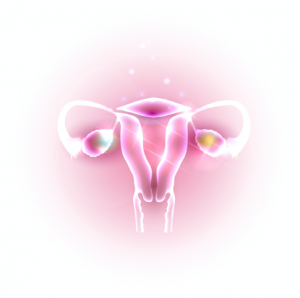SYMPTOMS AND DIAGNOSIS OF PCOS

15th Febuary, 2020
PCOS can be a complex condition to identify because there are a number of red flags that present themselves differently. So, while women may show mild or no signs others may experience more severe symptoms.
The high androgen levels circulating in the body cause most of the symptoms seen in PCOS. Additionally, a lesser known phenomenon called ‘insulin resistance’ plays a key role in the development of PCOS and is found in 60 – 80 % of women with PCOS (1, 2). Insulin, a hormone produced by the pancreas of the body, is needed to control blood sugar levels in our blood. It helps to shift the glucose in the blood (broken down from the food we eat) into the body’s tissues, where it is further broken down to produce energy needed for our daily functions. Insulin resistance implies that these tissues are not responding to the insulin secreted. As a result, to compensate, the pancreas secrete a higher amount of insulin to overcome this block. High levels of insulin can not only cause a variety of symptoms in PCOS but also increase the levels of androgens in the body, further amplifying the condition.
More on Symptoms and Diagnosis
- Menstrual cycle: Disruption of the normal average 28-day cycle (21 to 35 days) can be a result of either high androgen and insulin levels or both. An irregular period is defined as either less than 8 cycles per year or more than 35 days a cycle. While these irregular cycles may make it more difficult for women with PCOS to conceive naturally, it is important to note that all PCOS sufferers are not infertile. Studies have shown that women with PCOS can have the same number of children as women without PCOS (3).
- Excess hair (hirsutism) or hair loss (alopecia): Both of these are again caused by high level of androgens in the body. The excess hair grows in areas that are normal in men (especially facial hair) and the hair is thicker and darker. Secondly, male-pattern balding—receding frontal hair line or thinning of hair on top of your head—can also occur.
- Acne: High level of androgens increase the oil production in the skin, therefore leading to increased acne.
- Weight gain: A lot of women (though not all) can progressively gain weight or have difficulty losing it. These issues are both a cause and effect of high insulin levels in the body. Stay tuned for more on this topic!
- Psychological effects: Women with PCOS have a higher risk of depression and low self-esteem (4). The development of excessive hair growth and acne often invokes distress in young women and may lead them to avoid normal social activities. Also, high insulin levels can lead to fatigue and sleep disruption.
Please note, this post is not to self-diagnose but to spread awareness. If you do think you have any of the above symptoms, do not panic. Instead, visit your gynaecologist or endocrinologist for detailed testing.
Dr. Juhi Agarwal – Doctor & Clinical Nutritionist


